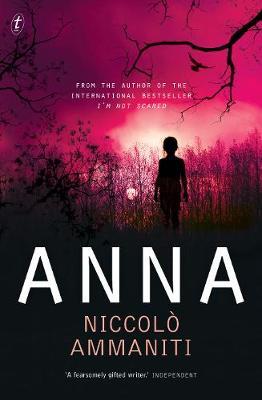Anna by Niccolo Ammaniti

Text, 2017. ISBN 9781925498561
(Age: Middle secondary +) Recommended. Science fiction. Dystopian
fiction. A virus has killed the adult population of the world in
this future dystopia. The only survivors are children who inevitably
die when they reach puberty. All the expected conveniences of
contemporary life have gone too, including electricity, transport,
medicine, and systems of government. The children who have survived
are aged between five and fifteen and increasingly have no knowledge
or memory of life before the virus. Anna is a survivor but is
approaching adulthood. She lives in Sicily with her young brother
whom she hides from gangs of wild children. Her guide is a Book of
Important Things written by her dying mother. The Book includes
instructions about everyday matters, how to find food, how to store
water and a command that Anna teach her brother how to read. They
live in a remote farmhouse that is surrounded by corpses of people
and their animals, but the children are so used to death that they
treat it very matter-of-factly. Their first concern is to eat and
they survive on cans of food and bottled soft drink supplemented by
pills and alcohol. Looting is an essential skill, and Anna is a
skilled and tough forager. On one of her excursions she fights a
starving Maremma dog that consequently attaches itself to her.
Forced from their home by a marauding gang the three of them, Anna,
her brother Astor and the dog, walk to the coast to try to escape to
the mainland where Anna hopes there may be adults who have survived
the virus. They encounter children who have formed strange religious
cults in the hope of being saved, and finally children who live with
little knowledge of language or old customs. Anna is aware that time
is running out for her as she reaches puberty on the journey. She,
Astor and the dog desperately embark on the crossing between Messina
in Sicily and Calabria. On arrival they don't at first find any
adults but there are several small signs that offer hope for the
future. The novel is dystopian; civilization is doomed, and humanity
with it, as the children cannot reproduce. However it is not as
shocking or bleak as other books in this genre are, for example
Cormac McCarthy's The Road. The children are very
matter-of-fact about death. Eating is more important than grieving,
and the children are practised foragers as well as being innately
hopeful. The deterioration of town and cityscapes is realistically
described as are the attitudes of the children. Anna is strong and
determined, and perhaps a little too resourceful but this is
acceptable in a work for young adults. The novel is a
thought-provoking addition to the genre of science fiction. It is
recommended for middle level readers.
Jenny Hamilton